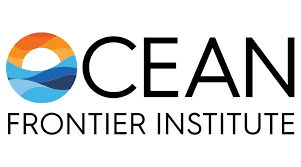Our research sponsors – we appreciated the financial support
Current Research Projects
Direct Wind Thermal Energy Conversion and Storage with Nanofluids |
| Imagine a freezingly cold winter day with the strong wind blowing outside your house somewhere in Newfoundland, and you are comfortably sitting in your room with heating and warm water - even during a power outage! This could be realized with a novel device that directly converts the wind energy to heat. This project aims to develop such a technology. The kinetic energy from the rotational motion of a small wind turbine is converted to thermal energy through fluid agitation and friction in a unique heat generator with specially designed rotating blades and baffles. To further improve the energy conversion and storage efficiencies, a nanofluid with tailored thermal fluid properties is used as the working fluid. The device will be scalable to fit the size and need of a house or a commercial building. It could also be used on marine vessels or offshore platforms in cold regions. This innovative renewable energy technology would have a beneficial impact in the remote areas with cold weather and rich in wind energy.
|
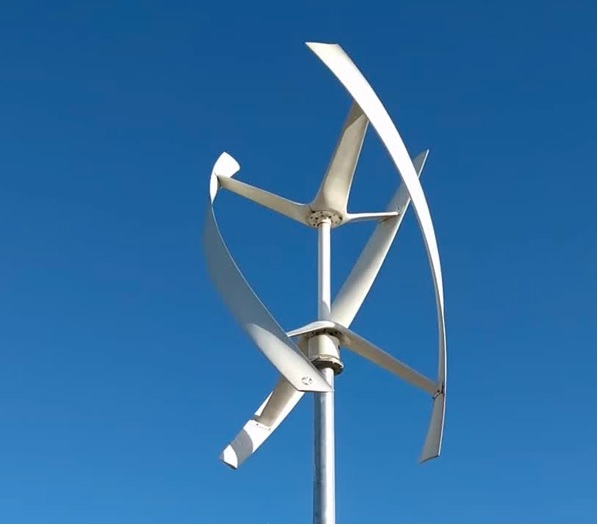 |
Hydrodynamics and acoustics of marine vessels with smart coatings |
| The marine environment is experiencing significant impacts due to increased shipping traffic. The maritime industry must develop a lowcarbon shipping strategy to comply with the increasingly strict emission regulations. Our research team studied several decarbonization technolgies for marine transportation, including improving efficiency and reducing frictional resistance by coating the ship hull and propeller. We are collaobrating with a leading marine coating company investigating the benefits of their smart anti-fouling coating materials. We also develop our own coating materials with super-wettabilities for anti-fouling and drag reduction applications. The fundmental hydraudyanmics is studied experimentally and numerically using advanced CFD methods. When applid to marine propellers, the smart coating is also expected to change the fluid cavitation by altering the turbulence around the propeller blades, leading to a change in the accoustic characteristics. This project will investigate the complicated and interactive effects of coating application on the fuel efficiency, emissions and noise.
|
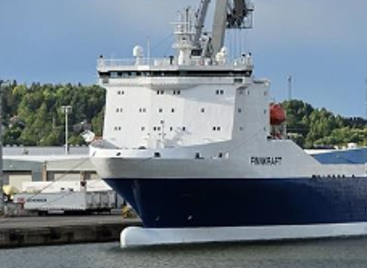 |
Heat transfer and thermal degradation of multi-layered insulation for high-temperature gas pipes |
| Thermal insulation is a critical element in the design and operation of various industrial systems including energy and power, refinery and process, and manufacturing. Thermal insulation contributes to energy saving, temperature control, and system efficiency, along with other benefits. The partner organization of this project specializes in multi-layered insulation assemblies for diverse applications, including oil/gas and marine sectors. A persistent issue arises when the insulation assemblies are used in high-temperature gas pipes (exceeding 700 °C), where the insulation materials tend to lose their integrity and become brittle. The objective of this collaborative project is to investigate the intricate heat transfer mechanisms occurring within the insulation assemblies and to establish an accurate temperature distribution profile. The outcomes of this project will provide useful insights into the root causes of material degradation and help improve the design of the insulation assembly, thereby enhancing the durability and effectiveness of these assemblies in high-temperature environments.
|
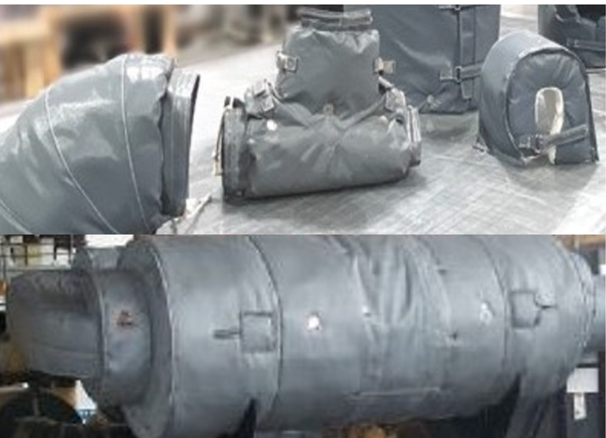 |
Liquid Repellent Surfaces to Improve Asset Integrity and Safety in Harsh Marine Environments |
| Harsh marine environments can cause significant threats to asset integrity and safety in offshore oil and gas development, especially in cold regions. Examples of these threats include corrosion of subsea and floating equipment, and icing of offshore platforms. These adverse events happen at the interface between a solid surface and liquids that flow or spray on the surface. The objective of this research project is to develop and test liquid repellent surfaces that can prevent liquid adhesion and mitigate these adverse processes, thereby promoting asset integrity and safety in harsh marine environments. The objective of this project is to use low cost fabrication (mechanical, chemical, or electrochemical) methods to develop hydrophobic and icephobic surfaces on engineering metals that are durable in harsh marine environments (cold temperature, high salinity, repeated friction, cyclic icing and melting).
|
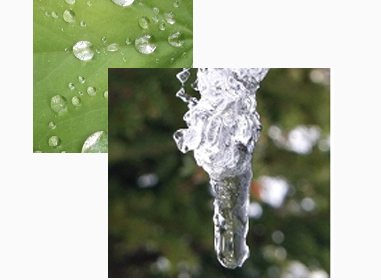 |
Past research
Past research sponsors and collaborative institutions
 |
Natural Sciences and Engineering Research Council (NSERC) |
 |
Manitoba Hydro |
 |
Province of Manitoba |
 |
University of Manitoba |
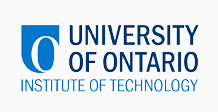 |
University of Ontario Institute of Technology (UOIT) |
 |
Massachusetts Institute of Technology (MIT) |
Phase Change Heat Transfer and Materials For Energy Applications |
| This project aims to develop advanced thermal energy storage and thermal management systems using phase change heat transfer and phase change materials (PCMs). The research team use numerical, analytical and experimental tools to understand the solid-liquid phase change processes of PCM, with different types of heat sources. We also study nanofluids and PCMs enhanced with nanoparticles. The applications include thermal energy storage from sustainable energy sources (e.g., solar), recovery of waste heat in industrial processes, thermal management of electronics and high power units, as well as advanced insulation of subsea pipelines.
|
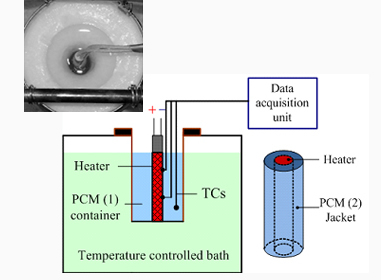 |
Boiling Heat Transfer and Two-phase Flow Diagnostic |
| Working with Prof. Jacopo Buongiorno at MIT, Dr. Duan developed advanced boiling heat transfer measurement and two-phase flow diagnostic techniques, with synchronized high-speed video, infrared thermography and particle image velocimetry (PIV). The measurements include bubble size and shape vs. time, bubble departure frequency, and growth times, as well as 2-D temperature histories of the heater surface and velocity distribution within the liquid surrounding the bubbles. The boiling facility and measurement techniques developed by the applicant are still widely used by other researchers at MIT to investigate boiling heat transfer as well as the critical heat flux of nanofluids. An experimental dataset was created for water boiling with separated bubbles. Expected features of the ebullition cycles were confirmed in the database, including strong cooling effect underneath the growing bubbles due to the presence of an evaporating micro-layer.
|
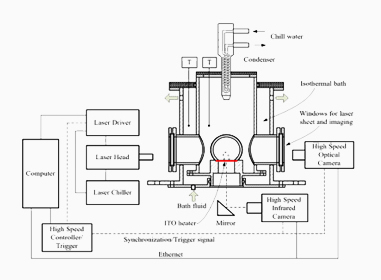 |
Ground Heat Transfer and Thermal Protection of Civil Infrastructure in Cold Regions |
| Ground heat transfer and the seasonal freezing-thawing processes were investigated. Far field heat conduction models were developed using an energy balance method for analysis of the active layer thickness. A new variable heating strength (VHS) line heat source model was developed to predict the transient thermal effects of metal footings in a power transmission tower foundation. The VHS model can also be used for modeling of ground source heat pumps and other similar ground thermal energy systems. Detailed experimental studies provided valuable new data for seasonal temperature variations in the foundation. Insulation layers and a thermal barrier with PCMs were investigated to mitigate the problem of ground melting induced foundation settlements. The effects of snow cover on ground heat transfer were also studied and a snow/solar shade were proposed with a ground cooling method. The research work provided better understanding of ground freezing and thawing in foundations and obtained valuable data for thermal protection of civil infrastructure in cold regions.
|
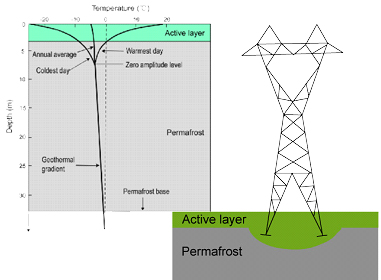 |
Research collaborators (current and past)
Dr. Yuri Muzychka (Mechanical)
Dr. Kevin Pope (Mechanical)
Dr. James Yang (Mechanical)
Dr. Greg Naterer (Mechanical)
Dr. Sima Alidokht (Mechanical)
Dr. Kris Poduska (Physics)
Dr. Sohrab Zendehboudi (Process)
Dr. Tahir Husain (Civil)
Dr. Ali Nasiri (Mechanical, Dalhousie)
Dr. Zongming Wang (Process, UPC)
Dr. Dashu Li (CNOOC)
Dr. Faisal Khan (Engineering,Texas A&M)
Dr. Jacopo Buongiorno (Nuclear, MIT)
Dr. Gary Wang (Engineering, Simon Fraser)




















